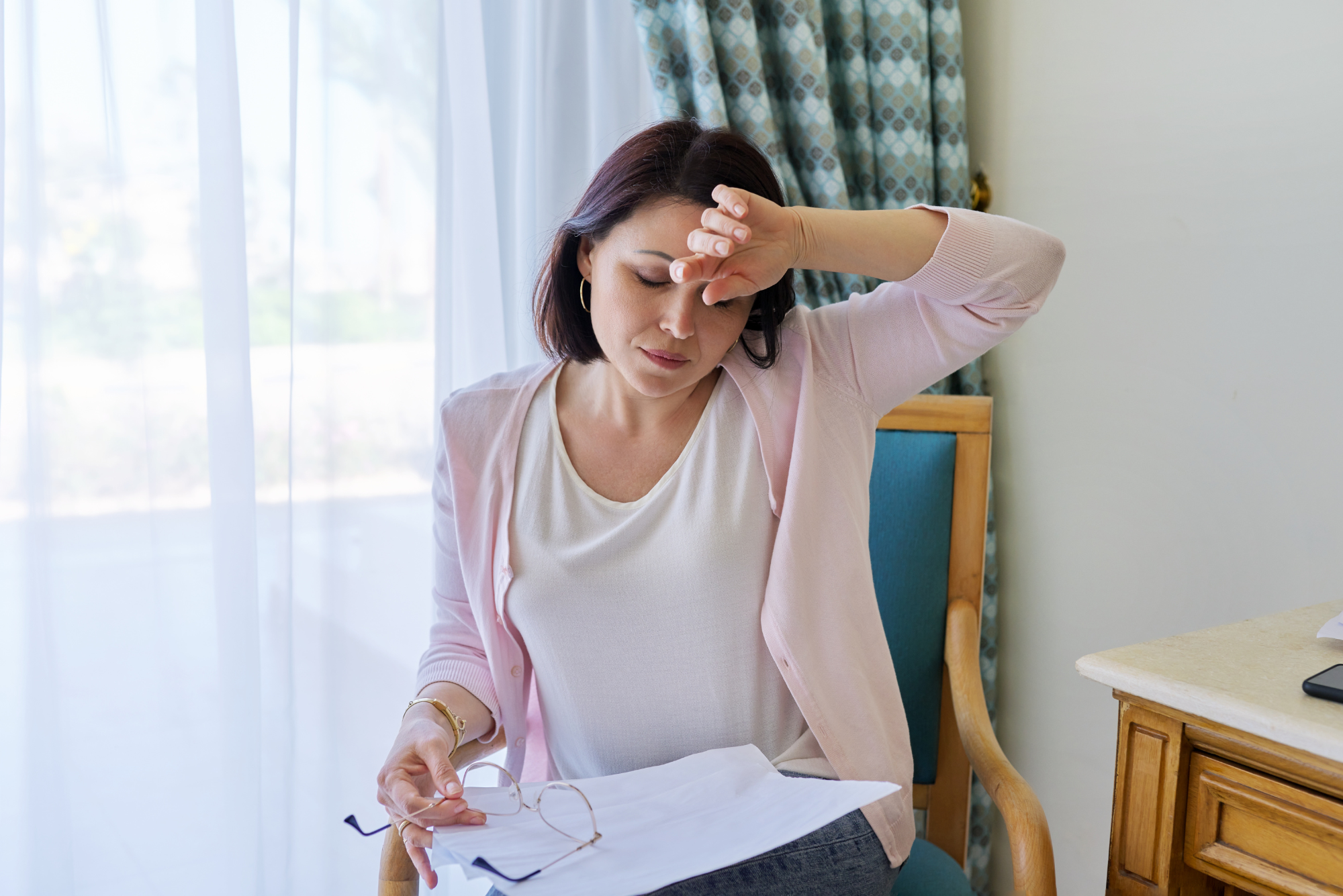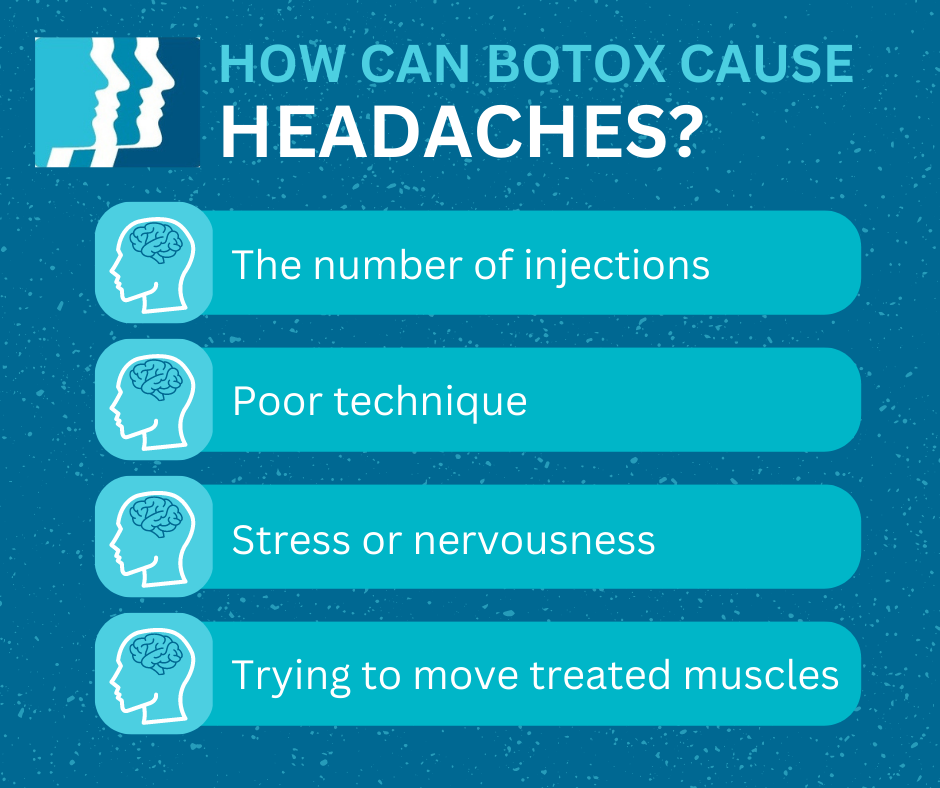An ENT’s Guide to Understanding Headache Issues After Botox

If you’re thinking about receiving Botox, you probably have questions: How does it work? Will it fix my problem? What are the side effects?
Maybe you’ve even heard stories from friends or the internet that pushed you to ask, can Botox cause headaches? That’s the question we’ll specifically address in this post.
Will You Get a Headache After Botox?
Getting a headache after Botox is extremely rare. Only about 1% of Botox patients experience a serious headache. In fact, within our own practice, we haven’t had any patients develop a severe headache after Botox treatment.
Rarely, however, some patients develop a mild headache that responds well to pain medicine and fades after about a day.
So, can Botox cause headaches? Though the vast majority of people won’t get a headache after Botox treatment, it is possible. We’ll explain a few reasons this might happen, along with some strategies to avoid the discomfort.

How Can Botox Cause Headaches?
If someone develops a headache after Botox, there may be a few reasons why:
- The number of injections: Many people receive around 15–20 Botox injections in one sitting. Although the needle is tiny, everyone’s body reacts differently. In some cases, repeated injections could aggravate nerve endings to cause mild discomfort or a headache.
- Poor technique: An inexperienced doctor may use poor technique when injecting Botox, leading to a headache afterward. An example of poor technique is using a dull needle. Needles lose a little sharpness with each use, which can lead to discomfort, so doctors administering Botox must limit the number of injections per needle.
- Stress or nervousness: If you’re stressed or nervous about your first Botox injection, you may unintentionally give yourself a tension headache after treatment.
- Trying to move treated muscles: After getting Botox, you might be tempted to try moving your treated facial muscles, either out of curiosity or to see whether the Botox is working. The extra strain on those and the surrounding muscles could result in a headache.
What Can You Do to Prevent a Headache After Botox?
Even if it’s mild, no one wants to have a headache after getting Botox. Fortunately, if you’re worried, you can take some simple preventative steps:
- See an experienced doctor: Just like you would with any other medical treatment, ensure you find an experienced, licensed medical doctor to administer Botox treatment. Certain types of doctors, like ENTs, are particularly familiar with facial anatomy. They have extensive knowledge of the face’s musculature and are well-equipped to administer Botox and achieve the best results with the lowest chance of side effects.
- Take Tylenol before your appointment: If you already know you’re likely to get a headache after Botox, consider taking the recommended dose of Tylenol (acetaminophen) before you head to your appointment. We don’t recommend NSAIDs (non-steroidal anti-inflammatory drugs) like aspirin or ibuprofen to prevent or treat a headache after Botox. These drugs have mild blood thinning effects that can cause bruising, so Tylenol is the preferred option.
- Relax: Make sure you’re comfortable with your Botox doctor and the overall treatment environment. If you typically get nervous or anxious before getting Botox, plan a calm day with as few stressors as possible. You can also use simple relaxation techniques like deep breathing, meditation, or aromatherapy to relieve anxiety before your appointment. If you prefer a massage to relax, be sure to schedule it before and not after your treatment.
- Resist testing your muscles: It can be difficult to resist the temptation of trying to move your treated muscles, but do the best you can. It can be helpful to find ways to distract yourself.
What Other Side Effects Can You Expect From Botox?
Botox has minimal side effects, and most people don’t experience any. Seeing an experienced and knowledgeable physician will help you avoid unnecessary and unpleasant complications. However, depending on the location and number of your injections, you might notice some minor, expected effects like:
- Difficulty pursing your lips: Injections in the lip area could make certain activities more difficult, like drinking through a straw or whistling.
- General soreness: Since Botox involves tiny injections, more extensive treatments could cause some general soreness. Expect this to resolve quickly.
Your doctor should review all potential side effects with you before you go in for your first Botox treatment. If you have additional questions about headaches after Botox or anything else, don’t hesitate to speak to your provider.
Dr. Cuthbertson is a physician at Ear Nose & Throat Associates of Lubbock. He joined the team at ENT Lubbock from Houston, where he was chief resident of the prestigious Bobby R. Alford Department of Otolaryngology at Baylor College of Medicine. He is board certified in Otolaryngology and Head & Neck Surgery and has quickly built a reputation, not only as an extremely skilled surgeon, but as an approachable and compassionate clinician adept in the newest standards and technologies. Learn more about Dr. Cuthbertson.
Categories:








